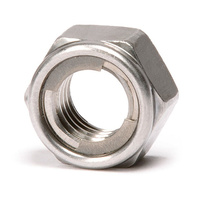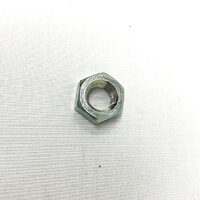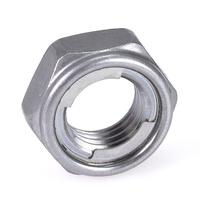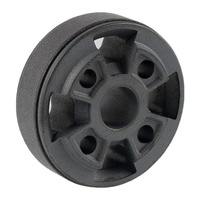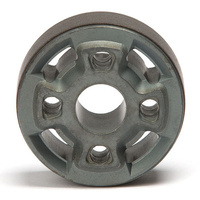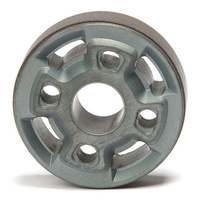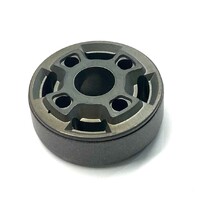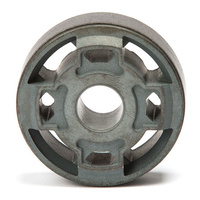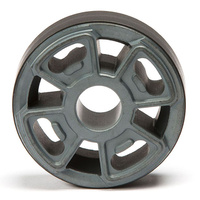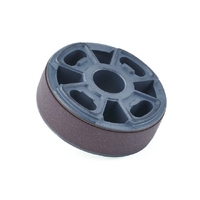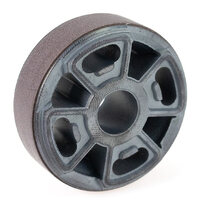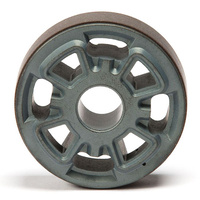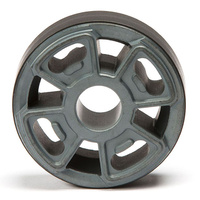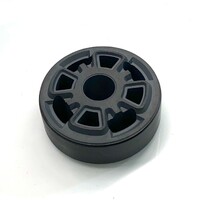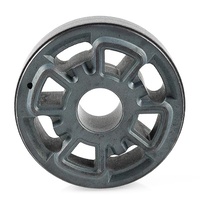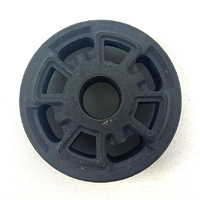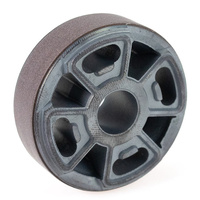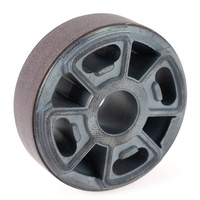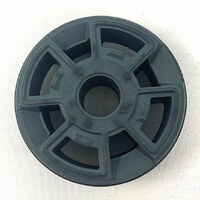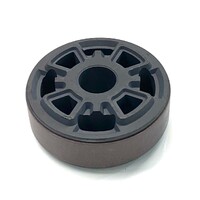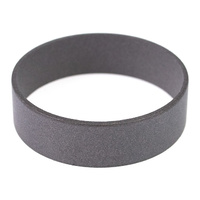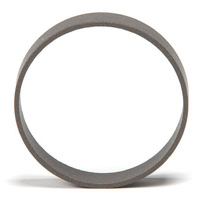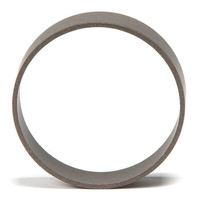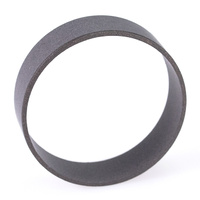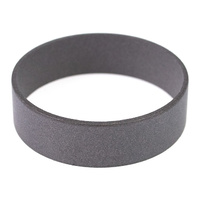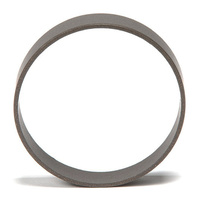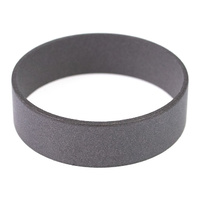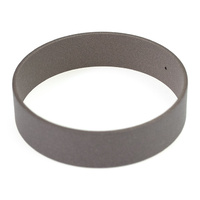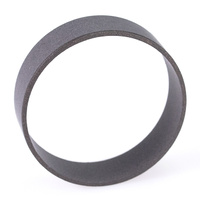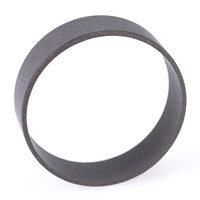Motorcycle Shock Damping Piston Parts
Your rear shock absorber has a complex thick metal disc with machined passages flowing between both flat sides, and to make sure the suspension fluid can only flow through these holes, a rubber o-ring and a teflon coated bush (or a soft PTFE band) seal around the outer diameter. Stacked on both sides of this piston are the valving shims, a collection of thin steel washers that flex when pushed by oil pressure. They come in a huge range of diameters and thicknesses, and are arranged in a specific order to create the right damping characteristics, with the compression valve stack on one side, and rebound stack on the other. The piston and shim stack is then attached to the end of the shock shaft using a locknut.
When the motorbike's coilover compresses, some of the oil flexes the shims open and pushes through the piston holes to the other side, creating friction and heat. If the damper gets pushed harder, the valving flexes further, allowing more through. After the bump, the coil spring pushes the bike back to it's ride height, and the oil is squeezed back through the piston and rebound shims to the other side, absorbing more energy. It's all basic science but there are thousands of different variables that change the way it feels - and that's why experienced tuners test and refine all that data on a suspension dyno.
We sell piston assemblies with o-rings & bushing rings or gapless bands already installed, as well as individual parts like lock nuts. For other internal valving components like shims and valve stop washers, please see our Valving Shims section.
2 In Stock

RCU Shock Main Piston Complete - 40mm - LTR450 06 front
Suzuki 2006 LTR450 Front(SKU: 120204000201)
3 In Stock
10 In Stock
8 In Stock

RCU Shock Main Piston Complete - 50mm - YZ250X 16- GasGas 18-
GasGas 2018+ & Yamaha 2016+ YZ250X(SKU: 120205000501)
1 In Stock
4 In Stock
29 In Stock
35 In Stock
9 In Stock
Your rear shock absorber has a complex thick metal disc with machined passages flowing between both flat sides, and to make sure the suspension fluid can only flow through these holes, a rubber o-ring and a teflon coated bush (or a soft PTFE band) seal around the outer diameter. Stacked on both sides of this piston are the valving shims, a collection of thin steel washers that flex when pushed by oil pressure. They come in a huge range of diameters and thicknesses, and are arranged in a specific order to create the right damping characteristics, with the compression valve stack on one side, and rebound stack on the other. The piston and shim stack is then attached to the end of the shock shaft using a locknut.
When the motorbike's coilover compresses, some of the oil flexes the shims open and pushes through the piston holes to the other side, creating friction and heat. If the damper gets pushed harder, the valving flexes further, allowing more through. After the bump, the coil spring pushes the bike back to it's ride height, and the oil is squeezed back through the piston and rebound shims to the other side, absorbing more energy. It's all basic science but there are thousands of different variables that change the way it feels - and that's why experienced tuners test and refine all that data on a suspension dyno.
We sell piston assemblies with o-rings & bushing rings or gapless bands already installed, as well as individual parts like lock nuts. For other internal valving components like shims and valve stop washers, please see our Valving Shims section.

